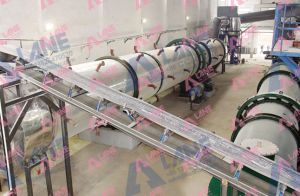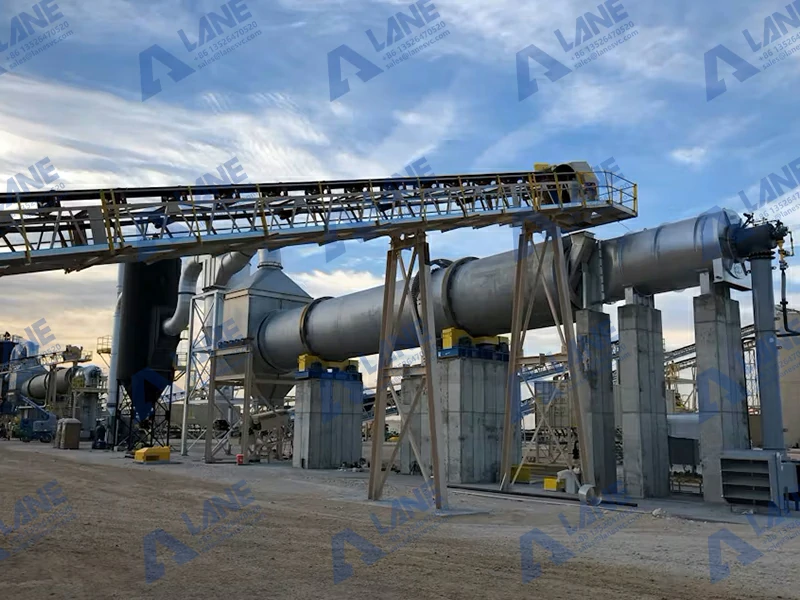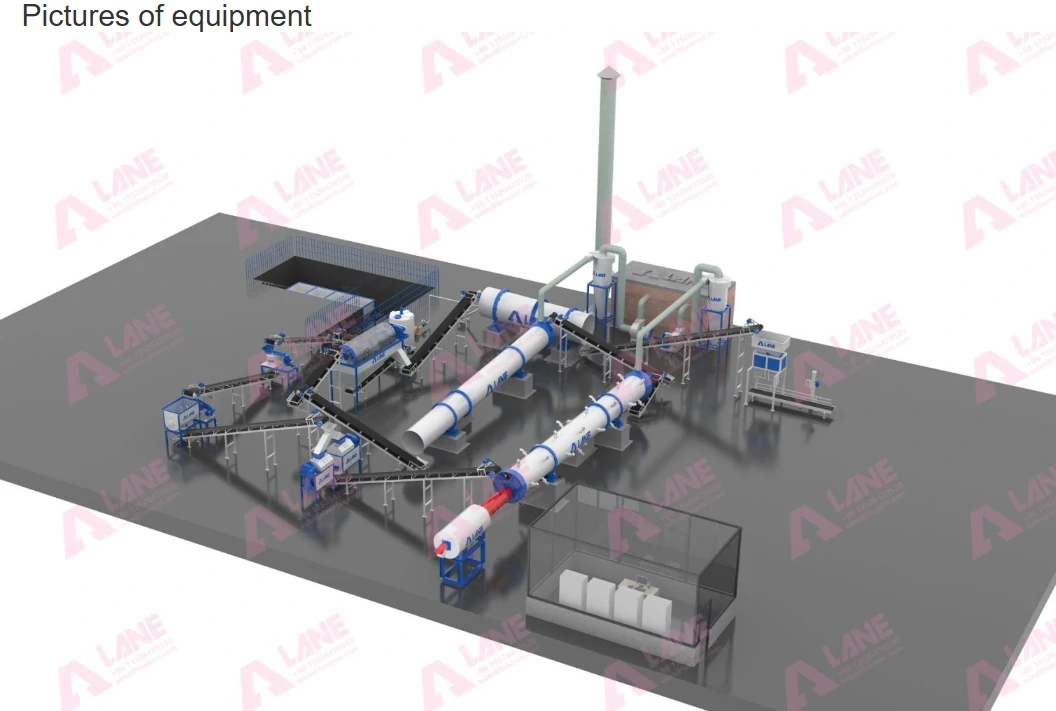Ammonium Phosphate Fertilizers: Boosting Agricultural Output and Soil Health
In modern agriculture, the need to maximize crop yield while maintaining soil health is a constant challenge. One of the most effective solutions to this challenge is the use of Ammonium Phosphate fertilizers. As a combination of nitrogen and phosphorus, two essential nutrients, Ammonium Phosphate fertilizers play a crucial role in boosting agricultural output, enhancing soil fertility, and supporting sustainable farming practices.
This article explores the importance of Ammonium Phosphate fertilizers in agriculture and how their use can significantly improve both productivity and soil health.
The Role of Ammonium Phosphate in Crop Nutrition

Nitrogen and phosphorus are two of the most vital nutrients that plants need for optimal growth. Ammonium Phosphate fertilizers provide a balanced supply of both, ensuring that plants receive the essential nutrients required for their development. Nitrogen, in the form of ammonium, promotes vegetative growth and helps plants produce the proteins and enzymes they need. Phosphorus, on the other hand, is crucial for root development, energy transfer, and overall plant metabolism.
By delivering these nutrients directly to the soil, this fertilizers ensure that plants have access to them during their critical growth stages. This combination is particularly beneficial in crops that require high levels of both nitrogen and phosphorus, such as cereals, oilseeds, and legumes.
Improved Crop Yields with Ammonium Phosphate Fertilizers

One of the key benefits of using this fertilizers is the potential for increased crop yields. Farmers who incorporate this fertilizer into their agricultural practices often report higher productivity across a variety of crops. This is because the ammonium and phosphate ions are readily available to plants, allowing for faster absorption and utilization.
For instance, in cereal crops like wheat and maize, this fertilizers help accelerate growth by enhancing root development and promoting efficient nutrient uptake. This results in stronger, healthier plants that are more resistant to diseases and environmental stressors, leading to higher yields at harvest.
In addition, these fertilizers are highly soluble in water, making them ideal for use in various soil types. Whether applied as a base fertilizer or as a top dressing, Ammonium Phosphate delivers nutrients consistently throughout the growing season, ensuring crops can reach their full potential.
Enhancing Soil Fertility and Health

Beyond boosting crop yields, Ammonium Phosphate fertilizers also play a pivotal role in maintaining and enhancing soil health. Over time, continuous farming can deplete essential nutrients from the soil, leading to reduced fertility. The application of this fertilizers helps replenish phosphorus and nitrogen levels in the soil, ensuring that it remains fertile and capable of supporting future crops.
Furthermore, the ammonium in this fertilizers is absorbed by the soil particles, reducing the risk of nutrient leaching. This means that the nutrients remain in the root zone where they are most beneficial to plants. This retention helps minimize the loss of valuable nutrients, which can occur with other types of fertilizers.
Another advantage of Ammonium Phosphate is its acidifying effect on alkaline soils. In regions where soils are highly alkaline, this fertilizer can help neutralize pH levels, making it easier for plants to access other nutrients in the soil. This contributes to overall soil health, promoting long-term productivity.
Ammonium Phosphate in Sustainable Farming Practices

Sustainability is a growing concern in agriculture, and the use of Ammonium Phosphate fertilizers aligns well with environmentally friendly farming practices. By promoting efficient nutrient use and minimizing waste, these fertilizers can help reduce the environmental impact of agriculture.
For example, when used properly, this fertilizers can lower the need for frequent fertilizer applications, which can lead to runoff and water contamination. The high efficiency of nutrient absorption reduces the potential for nutrient loss to surrounding ecosystems, protecting water sources and minimizing pollution.
In precision agriculture, Ammonium Phosphate fertilizers are often used as part of a nutrient management strategy that ensures crops receive the right amount of nutrients at the right time. This approach not only maximizes productivity but also reduces the risk of over-fertilization, which can harm both crops and the environment.
Versatile Applications Across Various Crops
One of the strengths of Ammonium Phosphate fertilizers is their versatility. They can be applied to a wide range of crops, including grains, vegetables, fruits, and forage crops. Their ability to improve both crop yield and soil health makes them a valuable addition to any farming system.
For cereal crops like wheat, barley, and corn, Ammonium Phosphate fertilizers support robust root development, which is essential for nutrient absorption. In root and tuber crops such as potatoes and carrots, phosphorus encourages the growth of larger, healthier roots, improving both quality and quantity.
Fruit-bearing crops like apples, grapes, and citrus also benefit from the balanced nutrition provided by Ammonium Phosphate, leading to improved fruit size and better overall yield. Meanwhile, leguminous crops, including soybeans and peas, require phosphorus for nitrogen fixation, making Ammonium Phosphate a key component in ensuring their successful growth.
Best Practices for Applying Ammonium Phosphate Fertilizers
To maximize the benefits of Ammonium Phosphate fertilizers, it’s important to follow best practices for application. Timing is critical—applying the fertilizer at the correct stage of plant growth ensures that the nutrients are available when the plants need them most.
In general, Ammonium Phosphate should be applied during planting or as a pre-plant fertilizer to establish a strong root system. In some cases, it can also be used as a top dressing during the growing season to provide an additional nutrient boost.
Farmers should also consider soil testing before applying Ammonium Phosphate to determine the existing nutrient levels in the soil. This helps ensure that the right amount of fertilizer is used, preventing over-application and minimizing environmental impact.
Conclusion
LANE Ammonium Phosphate production line contributes to the advancement of phosphate fertilizer production technology.
Ammonium Phosphate fertilizers offer a highly effective solution for increasing agricultural output and improving soil health. By providing crops with the essential nutrients they need to grow, these fertilizers enhance productivity while also supporting long-term soil fertility. Whether used in cereals, fruits, vegetables, or forage crops, Ammonium Phosphate is a versatile and sustainable choice for modern farming practices.
As global demand for food continues to rise, the importance of fertilizers like Ammonium Phosphate will only grow. By adopting best practices and integrating this fertilizer into nutrient management strategies, farmers can achieve higher yields, better soil health, and more sustainable agricultural systems.







Send a message to us